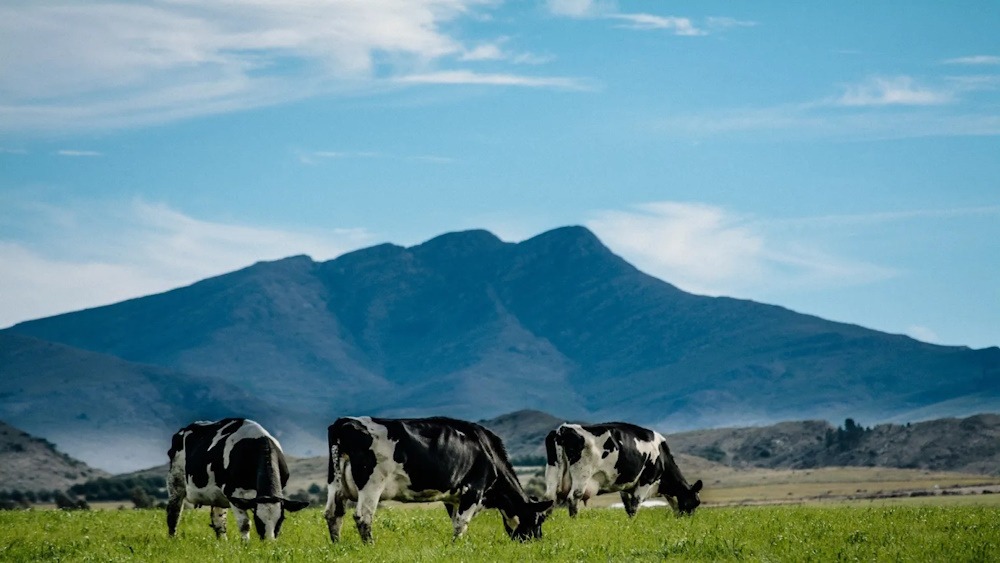Twenty months into President Javier Milei’s tenure, during which he promised to spearhead a free-market revolution in the so-called sick man of South America, the agricultural sector is encouraging him to advance his agenda further. This encompasses Rubén Artigues and his orchards located in the La Buena Moza region, situated two hours northwest of the capital, where the orange harvest is currently at its peak. Tractors operate with a heavy load of sweet navel oranges, harvested from the tree tops by laborers positioned on ladders. Similar to numerous farmers, Artigues welcomed Milei’s election in December 2023 as a victory for free enterprise following two decades dominated by protectionist centre-left policies.
However, he perceives that the benefits for farmers thus far have been modest, and that producers “are growing weary.” Agricultural products constituted 58 percent of Argentina’s exports in 2024, serving as a crucial engine of economic growth and a significant source of foreign currency. Farmers express significant dissatisfaction regarding the various taxes levied at national, provincial, and municipal levels, arguing that these taxes undermine their competitiveness. During his 2023 campaign, Milei pledged to eliminate onerous taxes on beef and cereal export duties, which he referred to as “robbery,” and ultimately abolish them entirely.
However, the reductions were gradual in their implementation and ultimately did not meet the anticipations of the industry when they were finally disclosed last month. Export duties on poultry and beef decreased from 6.75 percent to five percent, on corn from 12 percent to 9.5 percent, and on soybeans – a significant agricultural export for Argentina – from 33 percent to 26 percent. There was also some relief for sorghum, sunflower seeds and byproducts, as well as soybean byproducts. “We were in a dire situation and now we’ve reached a transitional phase,” Raúl Vítores, president of the Rural Society of San Pedro, commented on the cuts.
Artigues, who experienced a 30 percent reduction in his orange and peach harvest this year as a result of an unprecedented cold spell in July, described the changes as “insufficient.” While overseeing the packing of oranges for export to Europe, he recognized that the “situation is difficult” for the unconventional economist Milei, considering the challenging public finances he has taken on. “Shipping a box of oranges from an Argentine port incurs costs that are 40 percent higher compared to our competitors in Chile, Uruguay, or South Africa,” he contended.
The orange trees serve as an attractive target for thieves who conduct raids on the orchards during the night. “Producers are growing weary; many are abandoning [fruit] and renting their fields to soybean producers,” stated Artigues, who employs approximately 120 individuals, highlighting that soybean production, due to its lower labor intensity compared to fruit, generates significantly less employment.
Milei’s election was predicated on commitments to reduce expenditure, control inflation, and eliminate a significant budget deficit. He has fulfilled those commitments via a program of stringent austerity, resulting in the dismissal of tens of thousands of public sector employees and pushing many others into precarious financial situations. However, he was still required to return to the International Monetary Fund, to which Argentina already owes US$44 billion, in order to secure an additional US$20 billion loan.
During the annual Expo Rural farm fair in Buenos Aires in July, Milei expressed skepticism regarding his proposal to eliminate export duties entirely, indicating that he would refrain from such action if it jeopardized his carefully maintained fiscal surplus. However, the situation has not been entirely negative for farmers. Food producers have expressed approval for his partial removal of exchange controls and his effectiveness in combating inflation, which had been increasing the cost of their inputs. They generally endorse his austerity measures, provided that these do not adversely affect their financial interests.
One of Milei’s initial actions as president involved the suspension of public works, which included the upkeep of over 40,000 kilometres (25,000 miles) of highways that facilitate the movement of 90 percent of Argentina’s freight. Nicolás Pino, president of the Sociedad Rural Argentina, which represents large landowners, cautioned that the deteriorating condition of roads is adversely impacting business operations. “Increasing production is not feasible in the absence of roads, railroads, or waterways for transportation,” he stated at the farm fair.

